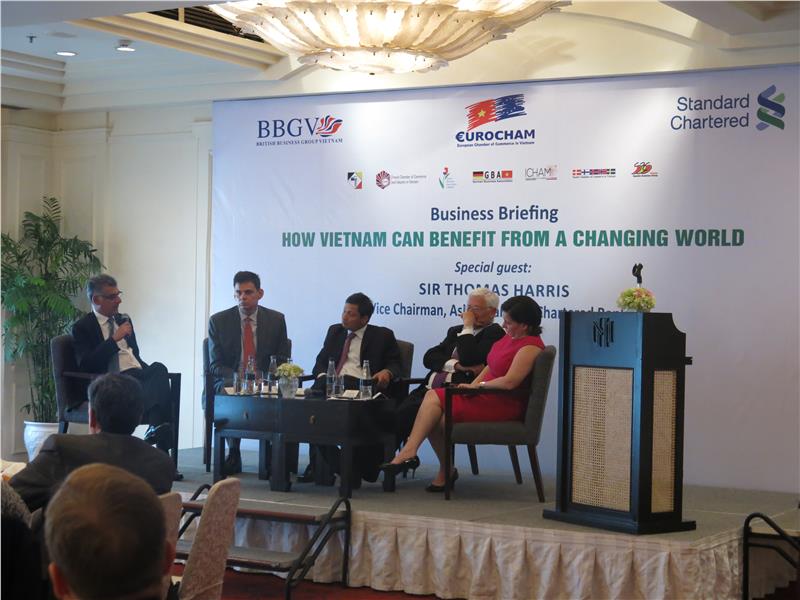According to international practice, foreign investment in Vietnam can now perform with two forms of direct and indirect investment. Recently, Vietnam has got more and more foreign investment.
Attracting foreign investment in Vietnam has always been a key part of Vietnam’s external economic affairs. Accordingly, foreign investors can perform their investment with two forms of direct and indirect investment in Vietnam.
Foreign Direct Investment
Direct investment is carried out by investors’ capital investment and their participation in management of investment activities. Forms of foreign direct investment in Vietnam include:
Establish economic organizations with 100% foreign investment capital.
Establish joint venture economic organizations between domestic and foreign investors including two types of form: limited liability company with 2 members and more: type of businesses with 2 or more members, and not more than 50 members; and joint-stock company: type of businesses maintaining 3 or more members of 3 and no limit on the number of capital contributing members.

Invest in BCC, BOT, BTO, and BT contracts. Accordingly, BCC (Business co-operation) contract is a form of investment in Vietnam signed between investors in order to exploit business collaboration, profit sharing, and production-sharing without creating a legal entity. BOT (Build operate-transfer) contract is a form of investment signed between competent state agencies and investors to construct and make business infrastructures projects in a certain period; investors had a responsibility to transfer without reimbursing to the Vietnam State when expiring. BTO (Build-transfer-operate) is fairly familiar with BOT contract, yet after completion of construction, investors had the right to make a business works in a certain period of time to recover the investment and profit. Finally, BT (Build-transfer) contract is an investment form signed between competent state agencies and investors to construct infrastructure projects; after the completion of construction, the investor had transferred works to the State of Vietnam; then the Government creates conditions for investors implementing other projects to recover investment capital and profit or payment to investors as agreed in the BT contract.
Besides, there are also some other notable forms of investment, namely investing business development, buying shares or contributing capital to participate in investment management, investing to implement the merger or acquisition of enterprises. In addition, apart from the establishment of economic organizations mentioned above, investors who are organizations may establish representative offices or branches in Vietnam.
Indirect investment
Indirect investment is a form investment through the purchase of shares, stocks, bonds, stock investment funds, and other valuable papers with intermediary financial institutions that investors indirectly involved in investment management activities.
The purchase of shares and the contribution of capital in enterprises operating in Vietnam is a popular form of foreign indirect investment in Vietnam. Foreign investors in Vietnam have the right to buy shares and contribute capital in equitized state-owned enterprises, the joint-stock companies, limited liability companies, partnerships and cooperatives. These transactions can be implemented among Vietnam enterprises, who directly sell their capital contribution or through brokers. Under provisions of Vietnam investment law, foreign investors are limited to only a certain percentage, depending on specific sectors.

Foreign investors who would like to purchase shares and contribute capital in Vietnam must ensure following conditions. They must retain investment accounts opened at commercial banks in Vietnam. All activities on purchasing or selling shares, transferring capital, collecting and using dividends, sharing profits, transferring money overseas and other activities related to business investment in Vietnam must be through this account. Additionally, they should own copies of the business registration Certificate or other equivalent document proving legal status certified by the competent authority of the country where the organization is registered. Besides, investors should ensure other conditions specified in corporate charters that foreign investors contribute capital, purchase shares and make sure comply with provisions of Vietnam investment law.
Particularly for organizations and foreign individuals investing in stock market, they will follow provisions of Vietnamese investment law on securities.






